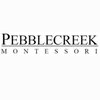Are you a parent or caregiver looking for an effective and innovative educational approach for your child? Look no further than Montessori education! Developed over 100 years ago by Italian physician Maria Montessori, this method focuses on nurturing children's natural curiosity and independence through hands-on learning experiences. In this blog post, we'll explore the benefits of Montessori education in early childhood development, discuss different program options available, offer tips on choosing a school, and provide additional resources to help you make an informed decision. Let's dive in!
What is Montessori Education?
Montessori education is a unique approach to learning that emphasizes meeting the individual needs of each child. This method is based on the belief that children are naturally curious and eager to learn, and it seeks to foster this innate love of discovery while helping children develop skills in socialization, problem-solving, and independence.
One key element of Montessori education is its focus on hands-on learning. Instead of sitting at desks listening to lectures, students work with materials specifically designed to help them explore concepts such as math, language arts, science and culture in a concrete way.
Another fundamental tenet of Montessori education is respect for each child's unique learning style. The teacher acts as a guide or facilitator rather than an authoritarian figure who imposes their will on the class. In this way, students are given greater freedom within appropriate boundaries which helps them build self-confidence and self-reliance.
Montessori education encourages children to become lifelong learners by promoting critical thinking skills through exploration-based activities which fosters their natural curiosity for knowledge acquisition.
The Benefits of Montessori Education
Montessori education offers a unique approach to learning that focuses on the child's individual needs and interests. This method of education aims to nurture each child's natural curiosity and love for learning, while also fostering independence, self-discipline, and a sense of community.
One of the benefits of Montessori education is that it creates a safe and nurturing environment where children can explore their surroundings freely. The classroom design encourages hands-on learning experiences, which allows students to develop critical thinking skills and problem-solving abilities.
Another advantage of Montessori education is its focus on creating independent learners. In this setting, children are given freedom within limits to choose activities that interest them while teachers act as facilitators rather than lecturers.
Montessori programs also foster social development by promoting collaboration through group activities. Children learn how to communicate with one another effectively, resolve conflicts peacefully, and respect each other's differences.
Studies have shown that students who attend Montessori schools perform better academically compared to traditional schools. They tend to score higher in reading comprehension and math skills due to the emphasis placed on experiential learning methods.
The benefits of Montessori education cannot be overstated. It provides an opportunity for children to grow socially, emotionally and intellectually while developing their individual strengths at their own pace in a supportive environment.
The Different Types of Montessori Programs
Montessori education offers various types of programs that cater to the different needs and ages of children. The most common types are infant/toddler, primary, elementary, and adolescent programs.
Infant/toddler Montessori programs are designed for children from birth to three years old. These programs focus on providing a safe and nurturing environment where infants can explore their surroundings freely while developing their senses.
Primary Montessori programs are intended for children aged three to six years old. This program is focused on helping young children develop independence, confidence, self-esteem, concentration skills, and other essential life skills through practical activities such as cooking or cleaning.
Elementary Montessori programs are designed for older kids aged six to twelve years old. In this program, students learn core subjects like math and language in a hands-on way with less emphasis on tests or grades.
Adolescent Montessori programs cater to the development of teenagers aged 12-18 years old by focusing more on social responsibility and community involvement rather than academic performance alone.
When choosing a Montessori school for your child's early childhood education journey consider their age range options available as well as the overall philosophy of each program offered.
How to Choose a Montessori School
Choosing the right Montessori school for your child is a crucial decision that affects their early childhood development. Here are some factors to consider when selecting a Montessori school:
Location: Look for schools that are conveniently located and have easy access. Consider the travel time, transportation options available, and proximity to your home or workplace.
Credentials and Accreditation: Ensure that the school has certified teachers who underwent specialized Montessori training from reputable institutions. Also, check if they hold any accreditation or affiliation with recognized organizations in the field of education.
Curriculum: Check if the curriculum aligns with Montessori principles and practices. Ask about their approach to learning, teaching methods, student-teacher ratio, and class size.
Facilities: Visit the school premises to assess if it provides a safe, clean environment conducive to learning. See if there are enough materials accessible by students which allow them independence in choosing activities.
Parent Involvement: A good Montessori School encourages parents' active participation in their child's education journey through parent-teacher conferences or other volunteer opportunities like classroom assistance during activities.
Costs: Lastly but not least important factor is cost as well as available financial aid programs offered by different schools so you can find an affordable option tailored best for you without sacrificing quality of care provided at each institution.
Before deciding on which school fits perfectly based on these factors mentioned above do research first then schedule visits to get better insight into how each one operates day-to-day!
Montessori Resources
Montessori education has gained popularity over the years, and with that comes a wealth of resources available to parents and educators alike. Whether you're looking for books, toys or lesson plans, there are plenty of Montessori-specific resources out there.
One great resource is the American Montessori Society (AMS). They have an extensive library of articles, videos and webinars on their website that cover everything from teaching techniques to creating a Montessori-friendly home environment.
Another valuable resource is Montessorium. They offer apps and digital materials that align with the Montessori philosophy, making it easy for parents to incorporate these principles into their child's daily routine.
For physical materials, companies like Nienhuis Montessori offer high-quality equipment specifically designed for use in a Montessori classroom setting. These materials are both durable and aesthetically pleasing, making them an excellent investment for any school or homeschooling parent.
Don't forget about local libraries! Many public libraries now have dedicated sections for educational materials geared towards young children. You may be surprised at how many quality resources you can find just by browsing your local branch's shelves.
Whether you prefer digital or physical resources, there are plenty of options available when it comes to incorporating the principles of Montessori education into your child's life. With a little research and some trial-and-error experimentation, you can create engaging learning experiences that will benefit your child well beyond their early childhood years.
Conclusion
To sum it up, Montessori education can be a game-changer in your child's early childhood development. It provides an individualized and self-paced learning environment that allows children to develop their full potential. Montessori schools focus on developing the whole child - intellectually, emotionally and socially, which makes them stand out from traditional educational systems.
If you're considering enrolling your child in a Montessori school, make sure to do your research beforehand and choose the best program for your child's needs. Always keep in mind that every Montessori school is unique and has its own teaching approach.
With this guide at hand, we hope you have gained valuable insights into the benefits of Montessori education as well as tips on how to choose the right program for your little one. Remember that investing in quality early childhood education sets a solid foundation for lifelong learning and success!


No comments yet